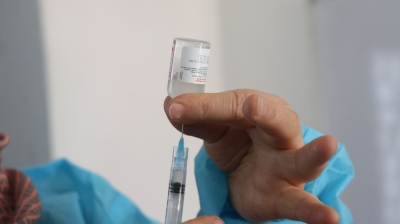Hyderabad– Leading vaccine manufacturer Biological E. Limited (BE) will get mRNA technology from the World Health Organisation (WHO) technology transfer hub to produce Covid-19 vaccines.
The Hyderabad-based company on Monday announced that it has been selected as a recipient of mRNA technology.
mRNA vaccines use a messenger RNA created in a laboratory to teach the human cells how to produce a protein that in turn initiates an immune response inside the body against a particular disease. The immune response will fight the actual virus as it gets into the body. At present, India has no Covid-19 vaccine made on mRNA platform.
After examining a number of proposals from India, the World Health Organisation’s Advisory Committee on Vaccine Product Development (ACPDV) selected Biological E. Limited as a recipient of mRNA technology from the WHO technology transfer hub, it said.
WHO and their partners will work with the Indian government and BE to develop a roadmap and put in place the necessary training and support for BE to start producing mRNA vaccines as soon as possible.
Primarily set up to address the Covid emergency, the WHO mRNA technology transfer hub has the potential to expand manufacturing capacity for other products as well, including treatments, and target other priorities.
Mahima Datla, Managing Director, Biological E. Limited, termed the development a remarkable milestone in their efforts to produce affordable vaccines for the world.
“We are very pleased with the trust that WHO places in our organisation, which adheres to the standards set by the WHO. This is also a reflection of our world-class processes, scale and effectiveness. BE has been investing in mRNA technologies since last year,” she said.
“This new technology will definitely strengthen our resolve to develop and manufacture more vaccines in future. This partnership with WHO will enhance our ability to develop next generation mRNA vaccines that could be more suitable globally and expand the reach of vaccine availability worldwide,” Mahima added. (IANS)















